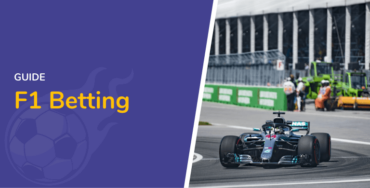The term bookie traditionally carried negative connotations. But amid today’s rapid legalisation of sports betting and the rise of sports wagering sites, being a bookmaker is now a legitimate occupation. And as this legitimisation continues to spread, punters are spending more money than ever before.
So how do bookies make money? Most of their cash comes from charging a transaction fee for their customers’ bets. Keep reading to find out more about the people and organisations that facilitate betting and how you can boost your chances of winning.
The Bookie’s Job
A bookmaker accepts and places bets and pays out winnings to punters. They set betting odds on a sports event, after which players put down cash on a bet. All of this was made possible by the 1928 Racecourse Betting Bill that took bookmaking and legal sports betting beyond horse racing.
There are many other terms for a bookmaker, including turf accountant, bookie, and an oddsmaker. The last one is important as it emphasises the most critical aspect of the job.
So, what does a bookie do to ensure a profit and stay in business? For starters, they calculate and adjust the odds by employing complex models. That way, no matter how the wager goes, the bookmaker always turns a profit. Bookmakers also charge a transaction fee for every bet, which is commonly referred to as a vigorish or the vig.
The Math Behind Odds and Margins
When it comes to calculating odds, bookmakers take an educated guess as to the most likely outcome in a sports game. The margin gives a slight edge to the bookie and prevents a tie where no one wins.
Let’s use two examples to show you how a bookie fee or a margin completely changes the betting odds. Imagine a simple program that serves only one function: to switch a light bulb on or off at any given moment in random intervals. And you have two sides betting whether a light bulb will be activated in 180 seconds.
Since there are only two outcomes in this case, each one has an equal chance of happening. There is a 50% chance of the light bulb turning on and a 50% chance that it won’t. That would be 2.00 each in decimal odds, 1/1 in fractional odds, or +100 in American (moneyline) odds. Either way, as a punter, you would bet £10 to get £20 of the bookmaker payout, with a 100% market and a £10 profit.
However, with a 100% price market, the bookie gets nothing from this bet. Hence, they raise it above 100% by introducing a margin of 4.7%, 1.91 in decimal odds, 10/11 in fractional odds, and -110 in moneyline. Now, you have to bet £10 to win £19.09, with £0.91 going directly to the bookmaker. Add 50 or more people betting, and the bookie pockets £45.50.
If you’re trying to figure out how do bookies make money on American football wagers, moneyline betting offers a good example. Let’s say you’ve placed a bet on Tampa Bay Buccaneers, who are deemed as favourites by the bookie in the match against Kansas City Chiefs.
Buccaneers are favoured by 10 points of a margin at a -10 spread, leading to odds of -110. That means you have to place £110 to get £210 (original bet plus £100). Lose, and the bookie walks away £110 richer. Either way, the £10 margin, also known as edge, is a guaranteed profit for a bookie, regardless of the bet’s result.
While moneyline betting is favoured by American bookmakers, it’s also available on some of the top football betting sites in the UK.
Setting the Odds
Before you can think about boosting your winnings, you need to understand how odds work. This is where bookies have an ace up their sleeve: odds compilers or traders. These are essential for any bookmaking company as they set the odds. They always have to keep in mind how much money they need to take in bets and how much they can make. It’s a precocious balancing act, where you won’t even notice unfair odds if the compiler is doing a good job.
Since odds compilers predict outcomes, they help answer the fundamental question ahead of every sports event: how do bookies make money with the given odds. The compilers take into account the profit margin with every estimation using advanced mathematical skills, especially in probability. They also rely on their sports knowledge and statistics.
To see the odds compiler in action, we’ll look at a tennis match between two heavyweights, Roger Federer and Rafael Nadal. There isn’t a significant difference in the abilities and performance of these two players ahead of the game, which are some of the first variables that the compiler must consider. They need to think about their favoured surface to play on, past game results, and endurance during the match. Lastly, they think about how much do bookies make from this match.
When they weigh all these factors, an odds compiler may conclude that Nadal has a 60% chance of winning while Federer has a 40% chance. Without the vigs or margins, the odds would be 1.67 for Nadal and 2.50 for Federer.
However, all bookmakers have to factor in the margin to profit, which usually goes up to 10%. In this case, odds compilers place a 5% vig into the betting odds, thus reducing odds for both players by 5%, with 1.59 for Nadal and 2.38 for Federer. By doing this, they are answering that all-important question: how does a bookie make money from this game.
Punters are not that helpless, as they can calculate how much the bookmaker’s vig is with a simple formula: ((1 / odds 1) + (1 / odds 2)) x 100. In our case, it would be ((1 / 1.59) + (1 / 2.38)) x 100, that equals 105% or a 5% of the bookie’s target margin.
The Importance of a Balanced Book
A bookmaker can count on a profit with a balanced book by using an elementary equation: margin x turnover = profit. This is how bookies make money without having to worry about the betting outcome jeopardising their earnings and leading to a loss.
If we look at the tennis game from a previous example, a bookmaker with a balanced book takes in a total of £10,000 in bets – £6,000 wagered on Nadal at 1.59 and £4,000 wagered on Federer at 2.38. If Nadal wins, the payout is £9,540 with £460 in profit for the bookmaker. If Federer wins, the payout is £9,520 with £480 in profit for the bookmaker. In this case, the bookmaker’s total profit is around £500, or the targeted 5% margin.
Meanwhile, an imbalanced book will show £6,000 wagered on Nadal at 1.59 and £5,000 wagered on Federer at 2.38. So what percentage do bookies take in this case? They would only profit if Nadal wins, in which case the payout is £7,950 with £2,050 in profit for the bookmaker. On the other hand, if Federer wins, the payout is £11,900, and the bookmaker would lose £1,900.
Every bookmaker aims to have a balanced book with a reliable source of income. However, in rare cases, bookies are willing to take an imbalanced book if they are sure about a specific outcome. They might give more favourable odds to Federer to wheel in players, thus making the most profit.
Winning Is Always an Option
Although bookmakers have a mathematical advantage over the punters, that doesn’t mean you’re going to lose every single wager. Sports betting is only growing in popularity because the odds aren’t always stacked against the player. You need to know what you’re betting on to be able to identify the games where you can pick winners. In most cases, it simply comes down to avoiding bad bets. So, if you’re wondering how do bookies make money, remember that a lot of the time, it comes down to punters placing bad bets.
FAQ
Do bookies lose money?
Thanks to margins, bookmakers rarely lose money unless they risk an imbalanced book to score a hefty profit.
Why is being a bookie illegal?
Being a bookmaker is a perfectly legitimate occupation. A bookmaker can either be an individual or an organisation. In the UK, the 1960 Betting and Gaming Act officially legalised sports betting operations.
What is the penalty for being a bookie?
Those behind unlicensed gambling facilities can get up to 51 weeks in jail and up to £5,000 in fines. So how do bookies make money when they’re involved in betting integrity breaches? Most of these cases involve money laundering or dealing with the proceeds of crime.


